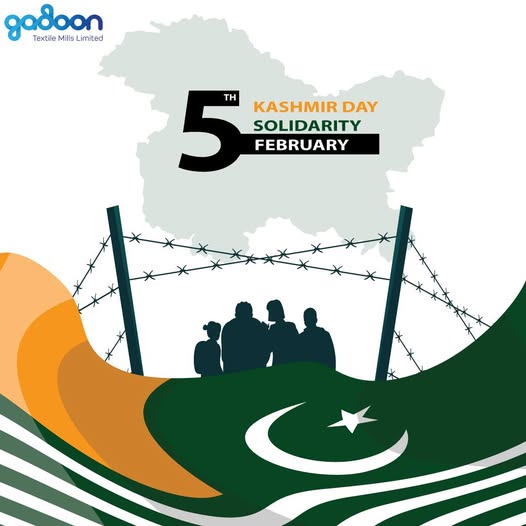In his recent address in Muzaffarabad, Chief of Army Staff General Syed Asim Munir reinforced a deeply-rooted belief that shapes Pakistan’s stance on Kashmir: the struggle for self-determination and justice is not merely a political or territorial battle but a sacred duty driven by faith, piety, and perseverance.
This perspective draws heavily on religious and moral principles that have long been central to Pakistan’s national narrative.
Pakistan’s unwavering support for the Kashmiri cause has always been rooted in values of justice and human dignity. General Munir’s statement that “Faith, piety, and struggle in the path of Allah (Jehad fi Sabilillah) form the foundation of our resolve, and those who walk this path shall always prevail” highlights Pakistan’s view that divine justice will ultimately support the oppressed people of Kashmir in their quest for freedom.
This belief provides spiritual motivation for both Pakistanis and Kashmiris to continue resisting injustice, regardless of the obstacles imposed by regional and global politics.
Throughout history, faith has played a crucial role in movements for self-determination. For Pakistan, Kashmir’s plight is seen through the lens of religious solidarity and the responsibility to protect the rights of Muslim communities facing oppression.
This is not a call for aggression but rather a reminder that moral integrity and faith-based principles guide Pakistan’s foreign policy and its response to injustices across borders.
General Munir’s emphasis on this point underscores a broader philosophy: Muslims are not defined by the size of their armies or the number of weapons they possess but by their unwavering belief in justice and truth. In this view, human resilience, fortified by faith, serves as a force greater than any physical power. Pakistan, as a state that emerged from the struggle for freedom, identifies deeply with the Kashmiri people’s ongoing battle for self-determination.
Pakistan’s repeated reference to Kashmir as its “jugular vein” stems not only from its geopolitical significance but also from a moral obligation to defend those who have been denied their basic rights. General Munir’s speech acknowledged that oppression may last for a time, but it cannot endure indefinitely.
This sentiment resonates strongly with Islamic teachings on justice, which assert that tyranny ultimately collapses under the weight of truth.
This approach to the Kashmir issue also shapes Pakistan’s long-term strategy. While political and military conflicts continue, Pakistan maintains that its commitment to Kashmir is not driven by territorial ambitions but by a responsibility to support an oppressed people.
This aligns with the principles of international human rights law, which emphasize the right of all people to self-determination and freedom from occupation.
Pakistan’s reliance on religious values does not mean it rejects international norms and diplomacy. Instead, it integrates these values with modern principles of justice. Pakistan has consistently called for a peaceful resolution of the Kashmir dispute through dialogue and compliance with U.N. Security Council resolutions.
However, this stance is reinforced by a spiritual dimension that encourages resilience and perseverance in the face of challenges.
The message is clear: Pakistan believes that moral strength, rooted in faith and justice, will eventually triumph. This belief gives the nation and the Kashmiri people the resolve to continue their struggle, knowing that no system of oppression can last forever.
General Munir’s reference to faith is not just rhetoric it is a powerful reminder that justice is a universal principle recognized across all societies and religions.
The inclusion of faith and morality in political discourse might be seen by some as symbolic, but for Pakistan, it has a tangible impact on national unity and commitment. The message resonates deeply with ordinary citizens who view the Kashmiri cause as a spiritual and ethical responsibility.
It also fosters solidarity between Pakistanis and Kashmiris, strengthening the shared belief that freedom, dignity, and justice are worth every sacrifice.
General Munir’s words are a testament to Pakistan’s vision of justice for Kashmir—a vision that does not rely solely on diplomacy or conflict but on a higher commitment to faith, humanity, and the principles that have shaped the nation’s identity.
By framing the Kashmir struggle in moral and religious terms, Pakistan continues to inspire both its own people and the global community to stand against tyranny and support the universal right to self-determination.
As the world watches events unfold in Kashmir, Pakistan remains steadfast in its belief that justice, rooted in faith, will prevail. The cause of Kashmir is more than just a political issue—it is a testament to the enduring power of moral conviction in the face of oppression.


